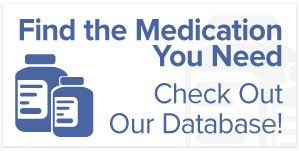Do you know what normal blood pressure is? Many Americans don’t!
There’s a lack of proper understanding of blood pressure and related conditions in the US. Many people wrongly assume high blood pressure levels are within the normal range, leading to false confidence and misinformation. High blood pressure, or hypertension, is a relatively common condition. Regardless, many people don’t know enough about it. The lack of awareness about the effects of hypertension can be attributed to many things, making this condition earn the title “a Silent Epidemic.”
Let’s explore what makes hypertension an understated medical condition.
1. It’s a Prevalent Condition
By definition, an epidemic is a widespread disease or condition that prevails over a long time period. Hypertension is called a silent epidemic because of how prevalent the condition is. It’s alarmingly widespread, affecting people of all ages, genders, and backgrounds.
According to the World Health Organization (WHO), an estimated 1.28 billion people worldwide suffer from hypertension, making it a leading cause of premature death and disability globally. While it is more common in older adults, the rising incidence among younger individuals raises concerns about the long-term health implications.
2. It Lacks Obvious Symptoms
One of the most perplexing aspects of hypertension is its lack of apparent symptoms in many cases. Unlike other health conditions that manifest through noticeable signs, hypertension can quietly progress without any outward indication of its presence.
As a result, a considerable number of individuals may remain unaware of their high blood pressure until they experience complications, such as heart attacks, strokes, or kidney problems. By that point, the condition has worsened and will likely require prescription medication.
3. It Causes Critical Damage
What makes the effects of hypertension so deadly is its impact on critical organs like the heart and brain. This condition significantly increases the risk of cardiovascular and neurological diseases. High blood pressure puts the heart under immense stress and strain, leading to heart attacks and heart failure on some occasions. It can also restrict blood flow to the brain, increasing the risk of acute strokes and brain damage.
4. It Can Be Difficult to Treat
Since hypertension is often a chronic condition, it requires ongoing management. This makes it difficult to treat since many people struggle to make lifestyle changes to accommodate the condition before it’s too late. Patients might have to take prescription medications to manage the effects of hypertension. However, a holistic and comprehensive treatment plan is often needed for effective treatment.

Enroll in a Free or Affordable Medication Program
Acquiring the medication you need can get costly. Let The Rx Helper help you get instant access to prescribed medication when you need it!
We offer 270+ Patient Assistance Programs for uninsured or minimally-insured patients across the US. These programs make the process of obtaining prescribed medication easier and more affordable for you. Our range of medications covers various medical conditions, including hypertension and asthma.
So, feel free to explore the unique qualification guidelines and details of our prescription assistance programs.



